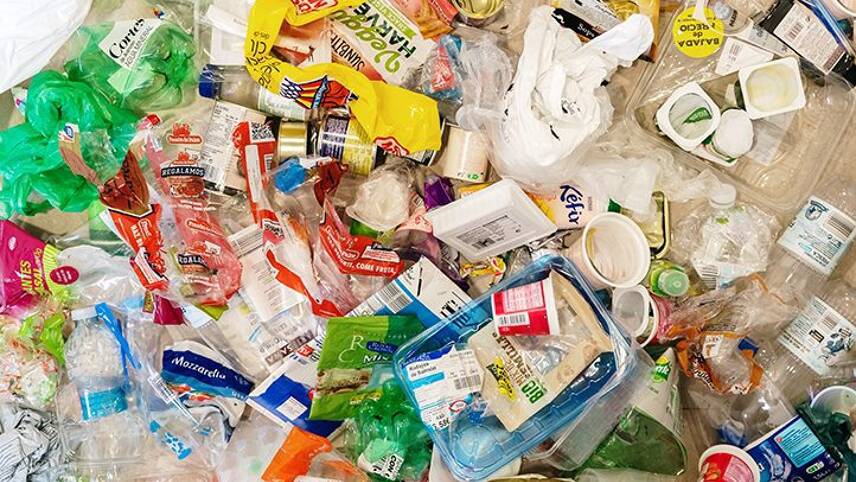Register for free and continue reading
Join our growing army of changemakers and get unlimited access to our premium content

Businesses are struggling with sustainability trade offs and costs
The Foundation’s report tracks the progress of the signatories of its New Plastics Economy Global Commitment. The Commitment was launched in 2018 and now has more than 80 corporate signatories including Danone, Unilever, Mars, PepsiCo, The Coca-Cola Company and L’Oreal.
It aims to create a “new normal” for plastic packaging by eliminating single-use packaging materials, increasing the amount of reused or recycled plastics in new products and innovating to ensure 100% of plastic packaging can be reused, recycled, or composted by 2025.
Government signatories to the Global Commitment now represent one billion people. More than 500 businesses, governments, NGOs and other organisations have aligned themselves with the commitment, which is being steered by the EMF and UNEP.
However, the new progress report warns that commitments are unlikely to be met, in part due to the increased use of flexible packaging and a lack of investment in collection and recycling infrastructure.
While 59% of signatory brands have reduced their use of virgin plastics, an overall 2.5% rise in plastics was recorded by the EMF, reversing the falls seen in 2019 and 2020.
The EMF notes that governments and businesses need to invest in ways to achieve 100% technical recyclability for rigid plastic packaging, which is also being hindered by “inadequate collection and sorting infrastructure” globally.
Flexible plastics like sachets and films are also causing problems due to the difficulty in recycling them at scale. The EMF claims this is a key reason why businesses will miss their 2025 targets.
More work also needs to be done to promote reuse over recyclability. In total, 42% of signatories have yet to introduce any reuse models into their packaging strategies.
This finding echoes that of a previous report from the Foundation, which found that just 2% of the products sold by the world’s biggest consumer goods firms during 2020 came in reusable packaging.
Businesses seem to be focused on introducing recycled content into their packaging. The share of post-consumer recycled content has risen from 4.8% in 2018 to 10% in 2021. However, despite this increased uptake, businesses may fall short of an aggregate target of 26% by 2025.
The EMG’s plastics initiative lead Sander Defruyt said: “The Global Commitment continues to provide unprecedented transparency on how major businesses are addressing the plastic pollution crisis. The latest findings demonstrate the need to urgently ramp up efforts – both from businesses and governments. Credible, ambitious plans are needed from businesses to scale reuse, to deal with the issue of flexible packaging and to reduce the need for single-use packaging.
“Governments must take action to help accelerate progress. In parallel, we must work towards establishing an ambitious global treaty to end plastic pollution. Organisations such as the recently launched Business Coalition for a Global Plastics Treaty – convened by the Ellen MacArthur Foundation and WWF – are here to help governments grasp this once-in-a-generation opportunity.”
That coalition was launched in September 2022, when businesses, financial institutions, and non-governmental organisations (NGOs) came together to announce plans to establish an “ambitious” global treaty to end plastic pollution.
The coalition has been created to ensure that the voice of businesses and NGOs is heard as unified as UN member-states work to formalise a global treaty to end plastic pollution. The broad terms of the treaty were agreed upon this spring following discussions in Nairobi. Attendees agreed that the treaty should cover all parts of the plastic life-cycle, thus leading to a decrease in virgin plastic production as well as improvements to waste management and recycling.
Organisations participating in the new coalition see the global treaty as the “single most important opportunity to accelerate progress” towards a circular economy in which plastic never becomes waste or pollution, and the value of products and materials is retained in the economy.
The treaty negotiation process, which is expected to conclude at the end of 2024, will largely determine the trajectory of the plastic pollution crisis for generations to come.
Last year’s progress report from the Foundation claimed that brands were on course to reduce their virgin plastic use by one-fifth by 2025.
That report claimed that the virgin plastic use of all participating businesses collectively was on track to peak in 2021. As such, by 2025, the cohort will use 20% less virgin plastic than in 2018, provided that they deliver on their commitments.
The report notes that the majority of this reduction will be driven by companies replacing virgin plastic feedstocks with recycled content.


Please login or Register to leave a comment.